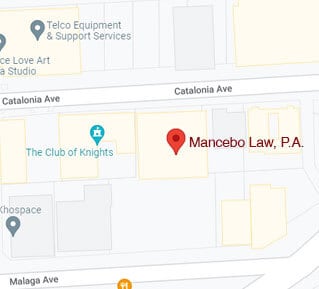 In this article, you can discover:
In this article, you can discover:
- The attendance requirements for buyers and sellers at closings.
- The flexibility of closing locations, including remote options.
- The importance of having a real estate attorney for refinancing, especially for commercial properties.
Who Is Required To Attend The Closing In Florida Real Estate Transactions?
In Florida, both the buyer and seller are typically expected to attend the closing of a real estate transaction. However, it’s not mandatory for them to be physically present at the same time or even at the closing itself, thanks to the option of remote closings.
In a remote closing, the necessary documents are sent to each party, who can then sign them in the presence of notaries and witnesses before returning them. While a traditional closing ceremony is not a requirement, it’s crucial for both buyers and sellers to properly execute all the required documents to ensure the transaction is completed successfully.
Generally speaking, buyers are more likely to attend the closing in person, often accompanied by their real estate agent. In transactions involving financing, buyers and sellers are usually kept in separate rooms due to specific legal requirements.
Where Do Real Estate Closings Take Place?
The location of a real estate closing can vary depending on the specifics of the transaction. Traditionally, closings are held at the office of the attorney or the title company handling the transaction. However, with the increasing popularity of remote closings, the physical location has become more flexible.
For example, I have managed transactions where the buyer was in Qatar and the seller was in Portugal, and the entire closing process was conducted remotely without a fixed location. In such cases, documents are exchanged via courier services, and parties sign them at their respective locations, such as a U.S. Embassy or with a local notary.
While there’s no strict requirement for the closing to take place in a specific location, as a real estate attorney, I generally prefer conducting closings at our office for convenience and efficiency.
What Should Parties Bring To A Real Estate Closing?
At a real estate closing, buyers should bring proof of their closing funds, typically in the form of a wire transfer confirmation, along with two forms of identification. It’s also advisable to bring a camera to capture the momentous occasion.
Sellers, on the other hand, should bring their bank account information to facilitate the transfer of funds and their identification. The most important thing both parties should bring to the closing is a willingness to sign the necessary documents and a desire to finalize the transaction.
Is A Real Estate Attorney Necessary For Refinancing In Florida?
For residential properties in Florida, it’s not mandatory to have a real estate attorney for refinancing; a title agent can handle the process. However, if any legal issues arise during the refinancing, a title agent would need to involve an attorney, which could incur additional costs. Therefore, it might be more efficient to engage a real estate attorney from the beginning, who can handle both the transaction and any potential legal matters.
For commercial properties, a real estate attorney is usually required, as lenders often need a legal opinion on the business’s capacity to undertake the refinancing. Hiring a real estate attorney for refinancing offers several benefits, including a streamlined process, a fiduciary duty to the client, and a higher level of professionalism. An attorney is better equipped to address any issues that may arise during the transaction, providing a more comprehensive and efficient service compared to a title agent.
For more information on Real Estate Closings In Florida State, an initial consultation is your next best step. Get the information and legal answers you are seeking by calling (305) 363-6066 today.

Let's Get Started! Contact Us Now!
(305) 363-6066

